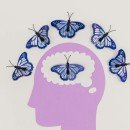Advancing Health Science with Medical Translation Services.



The foundation of health science lies in the pursuit of knowledge, the improvement of healthcare delivery, and the promotion of public and mental well-being. In our increasingly globalized world, groundbreaking research is being conducted across continents, cultures, and languages. However, the true value of these scientific discoveries can only be fully realized when they are shared and understood beyond linguistic barriers. This is where medical translation services come into play, empowering researchers, healthcare providers, and public health officials to collaborate, learn, and innovate effectively. By partnering with a reliable medical translation agency, health science professionals bridge the gap between local breakthroughs and global impact.
In this blog post, we will explore how medical translation supports and accelerates health science advancement across multiple disciplines, including pure health research, health services research, public health, and mental health. We’ll underscore the importance of accurate and culturally sensitive translation, examine key examples, and highlight best practices for choosing the right medical translation partner.
Medical Translation Services: Catalysts for Health Research Progress
Pure Health Research: Sharing Discoveries, Driving Innovation
Pure or basic health research aims to deepen our understanding of the human body, diseases, and their mechanisms, often resulting in insights crucial for development of new treatments and technologies. Every year, thousands of scientific papers, clinical trial results, and data sets are published worldwide. When these findings are restricted by language, their impact is diminished, reducing collaboration and duplicating efforts.
High-quality medical translation agency ensure that essential scientific knowledge is disseminated across linguistic boundaries. For instance, an oncology research breakthrough originating in Japan can be swiftly translated and integrated into clinical protocols by healthcare professionals in Europe, the Americas, and Africa. This globalization of information accelerates the pace of innovation, prevents redundant research, and brings life-saving treatments to patients faster.
Health Services Research: Improving Access and Efficiency
Health services research investigates the efficiency, effectiveness, and equity of healthcare services. This field often relies on multinational studies, patient surveys, and case evaluations. By harnessing the expertise of a certified medical translation agency, organizations can accurately translate clinical guidelines, informed consent documents, and patient questionnaires.
Consider the example of a global clinical trial spanning multiple countries: harmonized translations of trial protocols, data collection forms, and patient-reported outcome measures are vital to ensure compliance, data integrity, and consistent patient care. Without precise medical translations, disparities could arise, threatening the validity of research and patient safety. Ultimately, translation allows for more inclusive studies and helps shape policies that improve health outcomes for diverse populations.
Public Health Research: Preventing Disease and Promoting Well-Being
Public health researchers strive to identify risk factors, monitor disease trends, and implement interventions at population levels. The COVID-19 pandemic underscored the critical need for the rapid sharing of research, guidelines, and safety protocols. Accurate and timely translation of public health materials, such as fact sheets, vaccination guides, and emergency communications, can significantly affect a community’s response to emerging threats.
A single mistake in translation could lead to confusion or misinformation, potentially putting lives at risk. By leveraging professional medical translation services, public health agencies ensure that life-saving advice is delivered with precision and cultural sensitivity, maximizing the effectiveness of health campaigns and interventions globally.
Mental Health Research: Ensuring Inclusivity and Cultural Sensitivity
Mental health research is uniquely tied to societal, cultural, and linguistic contexts. Standardized assessments, intervention manuals, and educational materials must be adapted to respect language nuances and societal attitudes toward mental health. A specialized medical translation agency provides not only accurate linguistic translation but also localization—the adaptation of content for relevance and resonance within the target culture.
This approach ensures that mental health initiatives are accessible to diverse populations and that research findings are applicable across regions. This, in turn, enables mental health professionals to recognize, prevent, and treat mental illness with sensitivity and efficacy.
How Medical Translation Services Enhance Health Science Research
- Facilitating International Collaboration: Medical translation allows researchers from different countries to work together by providing access to each other's studies, clinical trial protocols, and data sets. This leads to richer, more comprehensive research outcomes.
- Expanding Clinical Trial Participation: By translating consent forms and patient instructions, clinical researchers enable more inclusive participation, ensuring that non-native speakers can safely and effectively contribute to studies.
- Regulatory Compliance: International research must conform to the regulations of multiple health authorities. Accurately translated documents help avoid misunderstandings that could delay approvals or jeopardize funding.
- Enhancing Patient Safety and Outcomes: Patients must understand their rights, responsibilities, and treatment options. Translation of discharge instructions, medication guides, and follow-up care information bridges communication gaps and improves safety.
- Building Public Trust: Transparent, accessible communication fosters trust between health authorities and the public, leading to better adherence to public health guidance.
Best Practices for Selecting a Medical Translation Agency
Given the complexity and high stakes involved in health science communication, selecting the right medical translation partner is essential. Here are some best practices to consider:
- Expertise in Medical Terminology: The agency should employ certified translators with deep medical and scientific backgrounds to ensure terminology accuracy.
- Quality Assurance: Look for agencies utilizing a multi-step review process, including editing by medical professionals, to minimize errors and inconsistencies.
- Regulatory Knowledge: Translators must understand the nuances of regulatory requirements in different countries, covering documentation for clinical trials and licensing.
- Cultural Competence: Localization is as important as translation. Choose agencies experienced in adapting content to different cultural contexts, especially for public health and mental health research.
- Confidentiality and Security: Health research often involves sensitive data. Prioritize agencies with strong confidentiality policies and secure data handling procedures.
Accelerating Global Health Science Through Translation
The challenges of global health—emerging diseases, aging populations, health disparities—demand coordinated responses anchored in scientific excellence and inclusivity. By harnessing the power of specialized medical translation services, researchers, health professionals, and public health officials elevate the reach and efficacy of their work. From accelerating the exchange of groundbreaking insights in pure health research to enabling culturally competent mental health care, a skilled medical translation agency is an indispensable partner in advancing health science worldwide.
As you navigate the world of health science, keep in mind that language should never be a barrier to saving lives and improving well-being. Trust in experts to translate not just words, but the very essence of your mission in health research. Embrace medical translation—your bridge to a healthier, more connected world.
Recent Posts

How Editing and Proofreading S...

How AI Tools Uncover Health Ri...

L’éthique de la recherche s...

Cómo la Investigación Cerebr...

Genetics Revolution by Unlocki...

How Big Data Is Transforming M...
Share it.
Links
© Copyright 2022 Impress-Network
